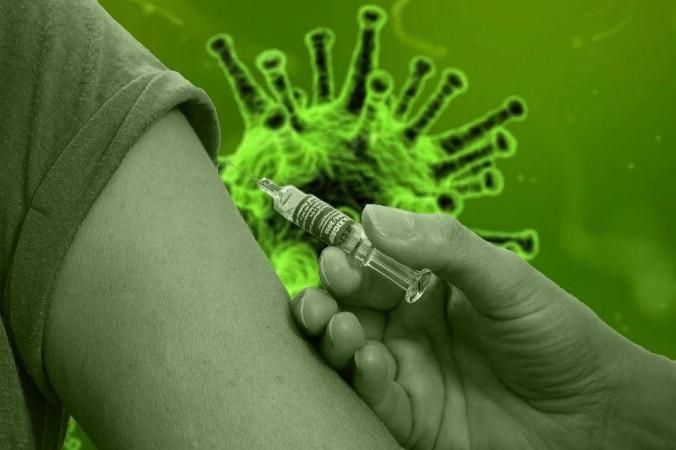The overall global Covid-19 caseload has topped 161.5 million, while the deaths have surged to more than 3.35 million, according to the Johns Hopkins University.
In its latest update on Saturday morning, the University's Center for Systems Science and Engineering (CSSE) revealed that the current global caseload and death toll stood at 161,548,671 and 3,352,915, respectively.
The US continues to be the worst-hit country with the world's highest number of cases and deaths at 32,893,031 and 585,224, respectively, according to the CSSE.

In terms of infections, India follows in the second place with 24,046,809 cases.
The other worst countries with over 3 million cases are Brazil (15,519,525), France (5,909,386), Turkey (5,095,390), Russia (4,866,641), the UK (4,462,603), Italy (4,146,722), Spain (3,604,799), Germany (3,588,502), Argentina (3,269,466) and Colombia (3,084,460), the CSSE figures showed.
In terms of deaths, Brazil comes second with 432,628 fatalities.
Nations with a death toll of over 100,000 are India (262,317), Mexico (219,089), the UK (127,930), Italy (123,927), Russia (113,182) and France (107,584).
UN stress on rapid vaccination
Meanwhile, India remains hugely concerning, with several states continuing to see a worrying number of cases, hospitalizations and deaths, the World Health Organisation (WHO) has said.
Tedros Adhanom Ghebreyesus, WHO Director General said in a briefing that WHO is responding and has shipped thousands of oxygen concentrators, tents for mobile field hospitals, masks and other medical supplies. "And we thank all the stakeholders who are supporting India," he said.
"COVID-19 has already cost more than 3.3 million lives and we're on track for the second year of this pandemic to be far more deadly than the first," Tedros said.
However, it's not only India that has emergency needs, he added. Nepal, Sri Lanka, Vietnam, Cambodia, Thailand and Egypt are just some of the countries that are dealing with spikes in cases and hospitalizations.
He added that the fact that so many are still not protected is a sad reflection on the gross distortion in access to vaccines across the globe.
OECD Forum
UN Secretary General reiterated similar views while addressing the ongoing Delphi Economic Forum VI on Friday."The pace of the recovery still depends on the speed of vaccination," he said.
According to an OECD analysis released this spring, the global gross domestic product (GDP) would grow by 5.6 per cent this year, and by 4 per cent in 2022. If vaccination rollout is slow and the virus remains in high circulation with a variant, global GDP could be about 2 per cent below the main projection by late 2022, Gurria stressed.
Many speakers at the forum, which will conclude on Saturday, agreed that trade plays a vital role in economic recovery.

"It's important to open new ways and new routes with different regions in the world," said Eurico Brilhante Dias, Portuguese Secretary of State for Internationalization. "The multilateral trade system is crucial to have a fairer, better trade with rules," he stressed. According to him, protectionism will not give more growth, more opportunities.
One of the positive aspects of the Covid-19 crisis is that it accelerated digital transformation in many European Union countries including Greece, Margrethe Vestager, European Commission Executive Vice-President for a Europe fit for the Digital Age, told the forum, adding that digital transformation will also help recovery.
"Digital solutions enabled us to keep on working and member states to support businesses and citizens during the pandemic," she said.








![BJP fields Tashi Gyalson for Ladakh; drops sitting MP [details]](https://data1.ibtimes.co.in/en/full/797185/bjp-fields-tashi-gyalson-ladakh-drops-sitting-mp-details.jpg?w=220&h=138)







![BJP fields Tashi Gyalson for Ladakh; drops sitting MP [details]](https://data1.ibtimes.co.in/en/full/797185/bjp-fields-tashi-gyalson-ladakh-drops-sitting-mp-details.jpg?w=220&h=135)